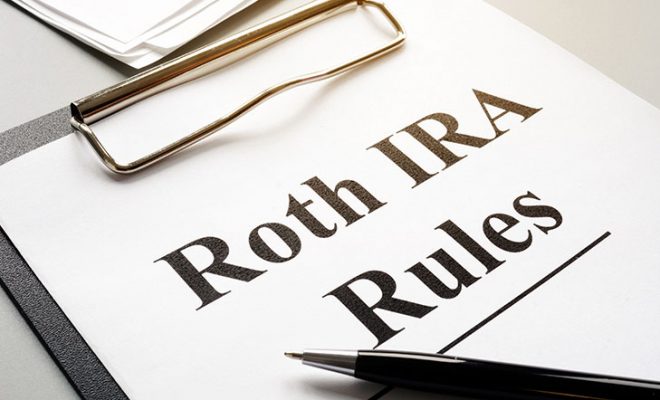Pros and Cons of Stocks and Bonds for Retirement Planning

When it comes to retirement, many people follow specific approaches to ensure that their future is safe and comfortable with no shortage of funds. To keep pace with this, you may invest in different kinds of investments, such as stocks, bonds, mutual funds, etc. While diversification is generally considered to be the key factor to a balanced and profitable portfolio, the precise concentration of stocks and bonds can be the deciding factor in your retirement planning.
In order to find out how much you need to invest in these two investment instruments, it would be helpful to know the differences, advantages, and benefits.
What is a stock?
A stock is issued by a company. It is a tiny portion of the company that it sells out to investors. For example, if you invest in a stock of company ABC and buy 30 shares, you own that portion of the company ABC. When the company makes profits its share price also increases. As a result, all stock owners earn a profit in the form of capital gains or dividends.
Stocks are traded on exchanges, such as the New York Stock Exchange. Companies put their stocks on the exchange and investors can buy or sell these stocks.
What is a bond?
A bond is money loaned to a company. When you buy a bond, it is not a purchase, it is a loan that you offer the company. The company uses this money to grow further and promises you to repay the loan with interest. This interest on the bond is your profit. Depending on the company bond you invest in, your rate of interest, investment period, and return will also vary.
There are primarily three categories of bonds
- Corporate bonds
- Municipal bonds
- Government bonds
What are the pros and cons of stocks?
Here are some advantages of investing in stocks:
- Higher returns: Stocks can offer you better returns for your invested capital. However, time plays a crucial role here. Stocks may prove to be high yielding investments over the long run.
- Offers dividends: If you invest in dividend paying stocks, you can earn a dividend on your investment. Dividend refers to profits earned by the company that it shares with investors.
- Provides ownership: When you invest in a particular company’s stocks, you become part owner of that company. Although this may be a very small portion and you may have no real power, you are still an owner of the company for the said number of stocks.
- High liquidity: The buying and selling of stocks happen on the stock exchange. You can easily buy and sell your stocks in case of a financial emergency. While you will have to pay taxes on your profits, you will still have easy access to your money.
Here are some disadvantages of investing in stocks:
- Fluctuating prices: The price of a stock often fluctuates, making it harder for you to pick the right time to enter and exit. This may take some expertise and time to master or may even require the help of a financial advisor or broker.
- High risk: Due to fluctuating prices, the risk component of a stock is quite high. While you may earn substantial profits, you also open yourself up to considerable risk.
- No guarantee: There is no guarantee to earning a profit when you invest in stocks. In fact, you may make no profit at all or even suffer a loss if the price of your stock falls.
What are the pros and cons of bonds?
Here are some advantages of bonds:
- Stable prices: The price of a bond is not as volatile as a stock and offers more stability. It is hassle free to monitor for all types of investors.
- Regular income: Some bonds may offer regular returns. The company pays you a fixed return as interest on your invested capital. This can substitute for regular income in retirement.
- Low risk: Bonds are considered to be less risky than stocks as their prices remain stable. So, this could be a better option if you are looking for low risk or moderate risk investments.
- Safer products: Bonds are rated by credit rating agencies like Standard & Poor’s and Moody’s. This brings in more transparency into the process, making it easier for you to gauge the credibility of a bond and invest accordingly.
Here are some disadvantages of bonds:
- Lower returns: As compared to stocks, bonds may not offer such high returns. The profits made by investing in bonds are stable but moderate even in the long run.
- Low liquidity: A bond offers lower liquidity than stocks. This may not be ideal if you need an immediate pool of funds for an emergency.
- Higher investment: Bonds may require a higher financial investment than stocks. The stocks of a company can be as low as $1, but bonds would require a higher capital investment.
Which one should you invest in?
As established above, stocks are more volatile and a risky investment out of the two. So, if you have a low-risk appetite, bonds would be a better pick for you. However, you would also have to settle for lower returns as compared to stocks. Stocks, on the other hand, have been known to show good returns in the long term. They can also offer you more liquidity.
In order to keep your portfolio well diversified, a mix of both these instruments is advised. This will offer you the right balance of risk and reward. The concentration will also depend on your age. If you are approaching your retirement soon, bonds can bring more stability and security to your retirement plan. However, if you have some years at hand and are willing to expose yourself to some risk, you can concentrate more on stocks. This way, even if you suffer from a loss, you will have some time to make up for it without impacting your retirement savings goal.
To sum it up
Stocks and bonds have a unique set of benefits and shortcomings that can affect each investor differently. So, it is crucial to keep them both in your portfolio. The right allocation can be decided on the basis of your age, income, retirement needs, and other investments. It also helps to consult a financial advisor to understand how each instrument can impact your retirement planning.
You can get in touch with a professional financial advisor in your area and optimally plan for your retirement.










